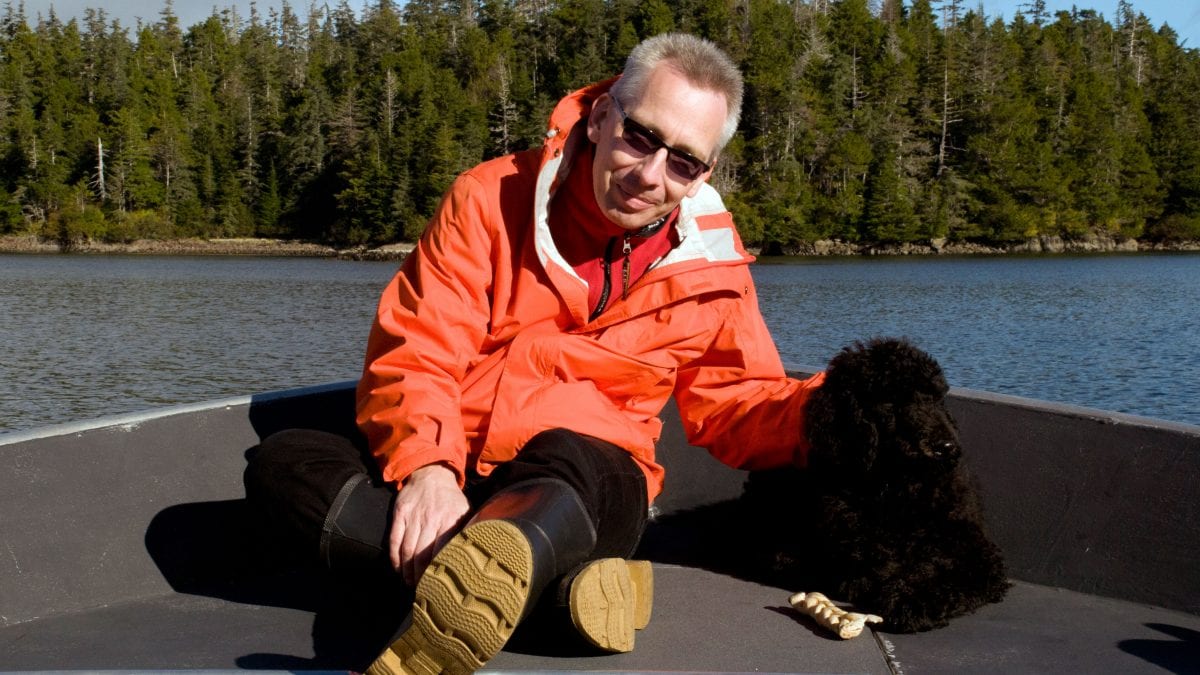From river to sea: Research team, including WHOI chemist, receives international award
 WHOI marine chemist Bernhard Peucker-Ehrenbrink studies how climate change, deforestation, and other disturbances impact the chemistry rivers around the world. (Photo courtesy of Bernhard Peucker-Ehrenbrink, Woods Hole Oceanographic Institution.)
WHOI marine chemist Bernhard Peucker-Ehrenbrink studies how climate change, deforestation, and other disturbances impact the chemistry rivers around the world. (Photo courtesy of Bernhard Peucker-Ehrenbrink, Woods Hole Oceanographic Institution.)
May 14, 2025
Woods Hole, Mass. (May 14, 2025) -- The Frontiers Planet Prize, the world’s largest science competition to enhance planetary health by fast-tracking innovative research, recently announced National Champions from 19 different countries who now advance to the International competition, which will award three winners $1M each to scale up their research.
University of Alberta’s Suzanne Tank and co-authors from various institutions, including Woods Hole Oceanographic Institution’s Bernhard Peucker-Ehrenbrink, were recognized for their publication, “Recent trends in the chemistry of major northern rivers signal widespread Arctic change,” published in Nature Geosciences.
The study tracks the chemistry of the six largest rivers that flow to the Arctic Ocean, which together drain over two-thirds of the Arctic Ocean’s watershed. This chemical fingerprint has helped determine the changing function of the Arctic system, from its terrestrial watersheds to the coastal ocean. These changes are indicative of broader shifts occurring within the Arctic system. Such shifts could have profound implications for the Arctic ecosystem, including its climate and wildlife.
“Understanding these changes is crucial for predicting future environmental conditions and for developing strategies to mitigate potential negative impacts,” said Peucker-Ehrenbrink. “Information provided by riverine chemistry also informs planetary boundary solutions, such as land-ocean CO2 sequestration. In addition to my work on large Arctic rivers, my research program focuses substantially on community-collaborative efforts to understand the effects of global change across the land-water interface in temperate and tropical regions of our planet.”
A direct response to the urgent need for faster global scientific consensus, the Frontiers Planet Prize has already engaged with more than 10,000 researchers, 23 academies of science, and 600 leading universities and research institutions from 62 countries, to bring forward transformational and globally scalable research from around the world, with a focus on enabling healthy lives on a healthy planet.
“Faced with immense threats to people and planet, we need bold, transformative solutions, rooted in evidence and validated by science. Innovative yet scalable solutions are the only way for us to ensure healthy lives on a healthy planet,” said Jean-Claude Burgelman, director of the Frontiers Planet Prize.
###
About Woods Hole Oceanographic Institution
The Woods Hole Oceanographic Institution (WHOI) is a private, non-profit organization on Cape Cod, Massachusetts, dedicated to marine research, engineering, and higher education. Established in 1930, its primary mission is to understand the ocean and its interaction with the Earth as a whole, and to communicate an understanding of the ocean’s role in the changing global environment. WHOI’s pioneering discoveries stem from an ideal combination of science and engineering—one that has made it one of the most trusted and technically advanced leaders in basic and applied ocean research and exploration anywhere. WHOI is known for its multidisciplinary approach, superior ship operations, and unparalleled deep-sea robotics capabilities. We play a leading role in ocean observation and operate the most extensive suite of data-gathering platforms in the world. Top scientists, engineers, and students collaborate on more than 800 concurrent projects worldwide – both above and below the waves – pushing the boundaries of knowledge and possibility. For more information, please visit www.whoi.edu.
